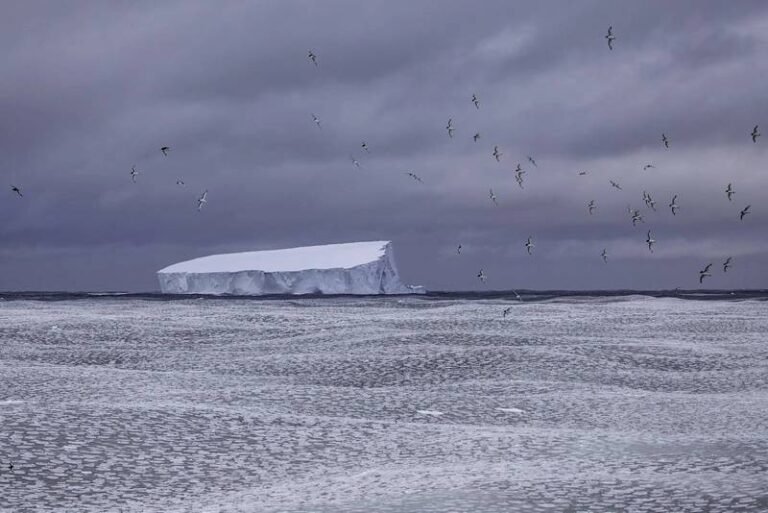Antarctica and Southern Ocean Facing Abrupt Changes Due to Climate Change
A recent research review published in Nature has highlighted the rapid and significant changes occurring in Antarctica and the Southern Ocean as a result of human-caused climate change. Led by Professor Nerilie Abram from the Australian National University, the study reveals a series of abrupt changes that are already underway or on the horizon.
These changes include a sharp decline in sea-ice coverage, weakening of ice sheet and ice shelf stability, and population declines in various marine and terrestrial species due to habitat loss. According to Abram, the impacts of human-caused climate warming on Antarctica can have far-reaching and irreversible consequences.
The interconnected nature of these abrupt changes in Antarctica is a cause for concern, as shifts in one part of the ecosystem can trigger cascading effects on the region’s ice, ocean, and ecosystems. These changes also have global implications, such as accelerating sea-level rise and amplifying climate warming worldwide.
Regime Shifts and Sea-Ice Loss
The research team’s analysis focused on the impact of regime shifts – transitions in the structure and function of biological or physical systems – on Antarctica’s ecosystem and its influence on the planet. One key driver of regime shifts in Antarctica is the loss of sea ice, a consequence of global warming.
Recent record lows in summer sea-ice coverage have raised concerns about a potential regime shift leading to diminished sea-ice cover in Antarctica. Dr. Petra Heil, a co-author and sea-ice scientist, highlighted the dramatic decline in Antarctic sea ice compared to the Arctic, with significant deficits in both winter and summer coverage.
The decline in sea ice has far-reaching consequences, including the slowing of the Antarctic Overturning Circulation, a global network of ocean currents crucial for Earth’s climate stability. Additionally, sea-ice loss exposes glacial ice shelves to damaging ocean swells and storms, accelerating iceberg calving and contributing to sea-level rise.
Impact on Species and Ecosystems
The loss of sea ice, along with other climate-related changes like atmospheric warming and ocean acidification, is leading to habitat loss for marine and terrestrial species in Antarctica. Emperor penguins, for instance, are struggling to adapt to rapid environmental changes, with studies warning of potential extinction by 2100.
Scientists have also observed a regime shift in phytoplankton species, impacting the food source of Antarctic krill, a critical component of the region’s ecosystem. These changes are rapidly modifying a complex system that is still not fully understood.
Call for Action
To mitigate the risk of abrupt and irreversible changes in Antarctica and the Southern Ocean, the research team emphasizes the need for additional observations, improved models, and simulations. However, the most effective way to address these challenges is by achieving true net zero emissions by mid-century to limit further warming and stabilize climate change.
By taking urgent action to reduce emissions and combat climate change, we can help preserve Antarctica’s unique ecosystem and protect the planet for future generations.

